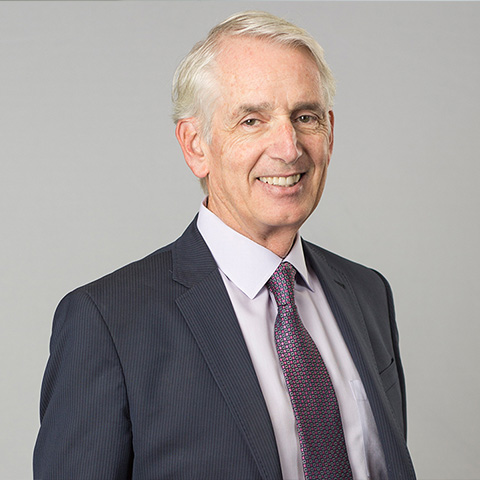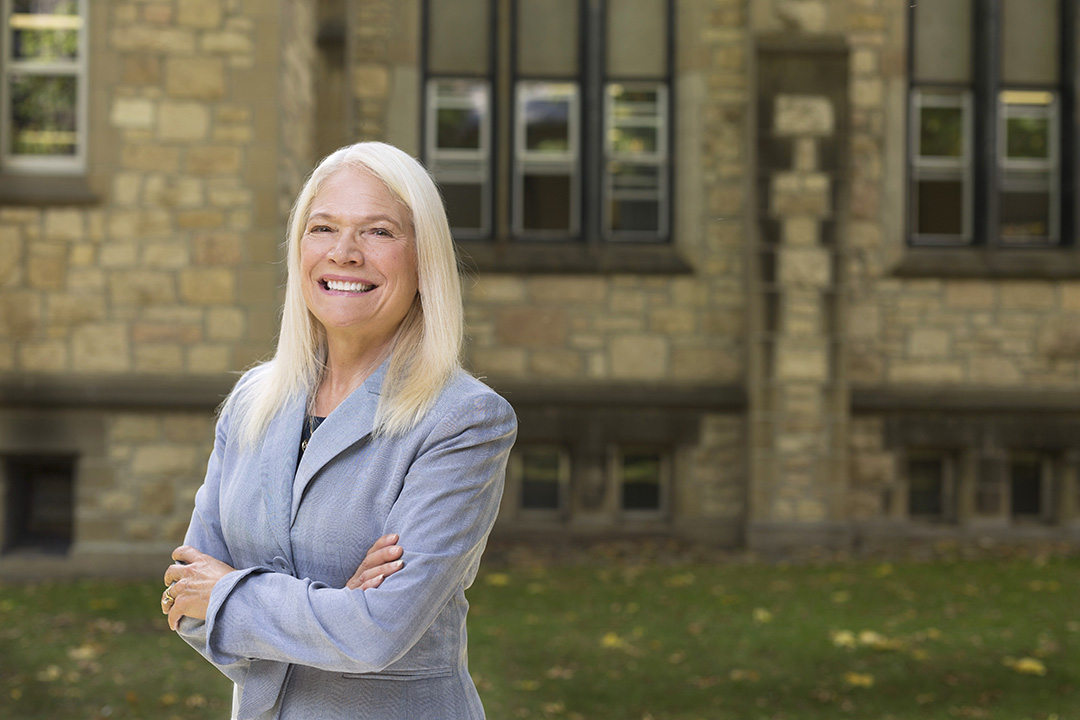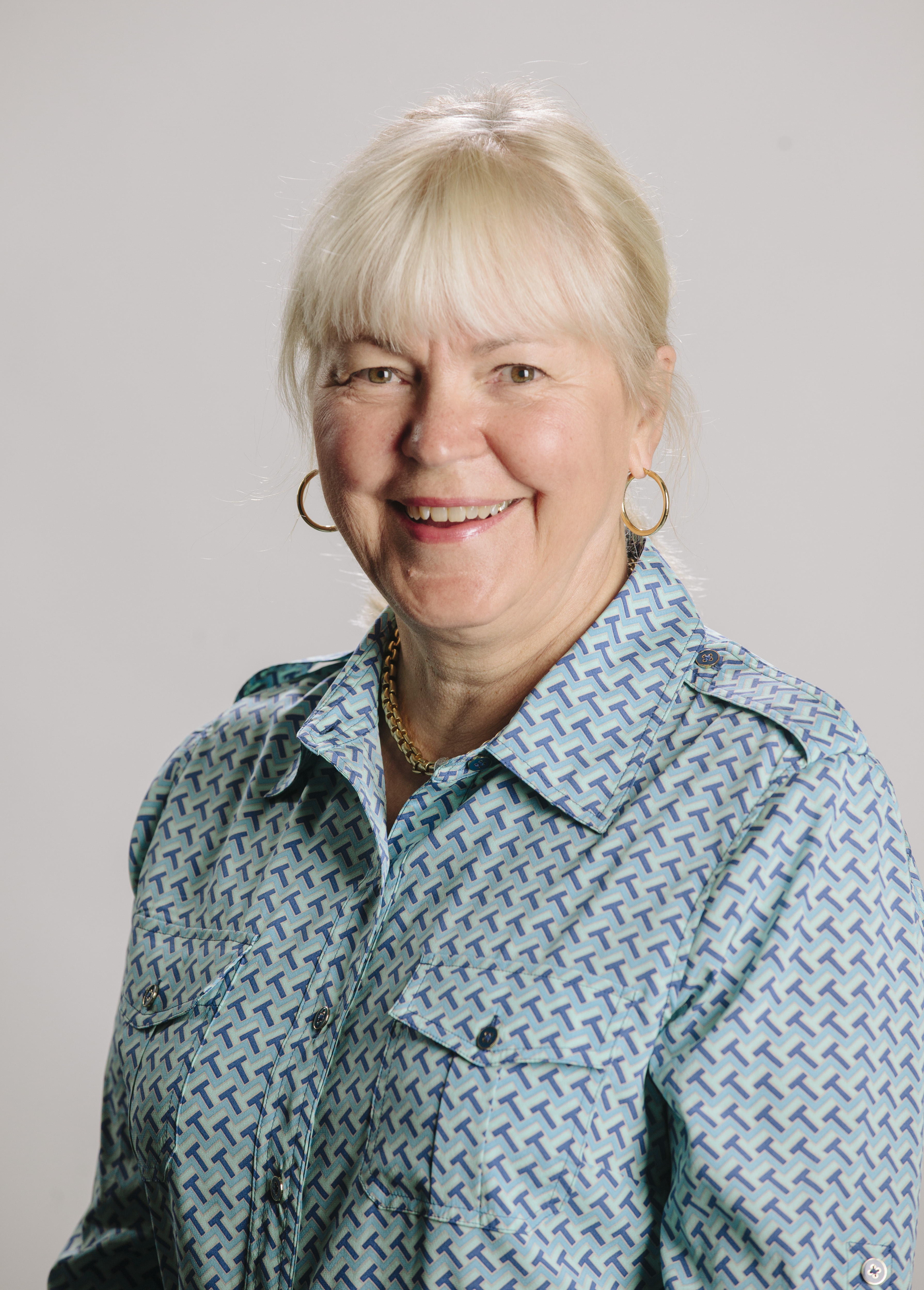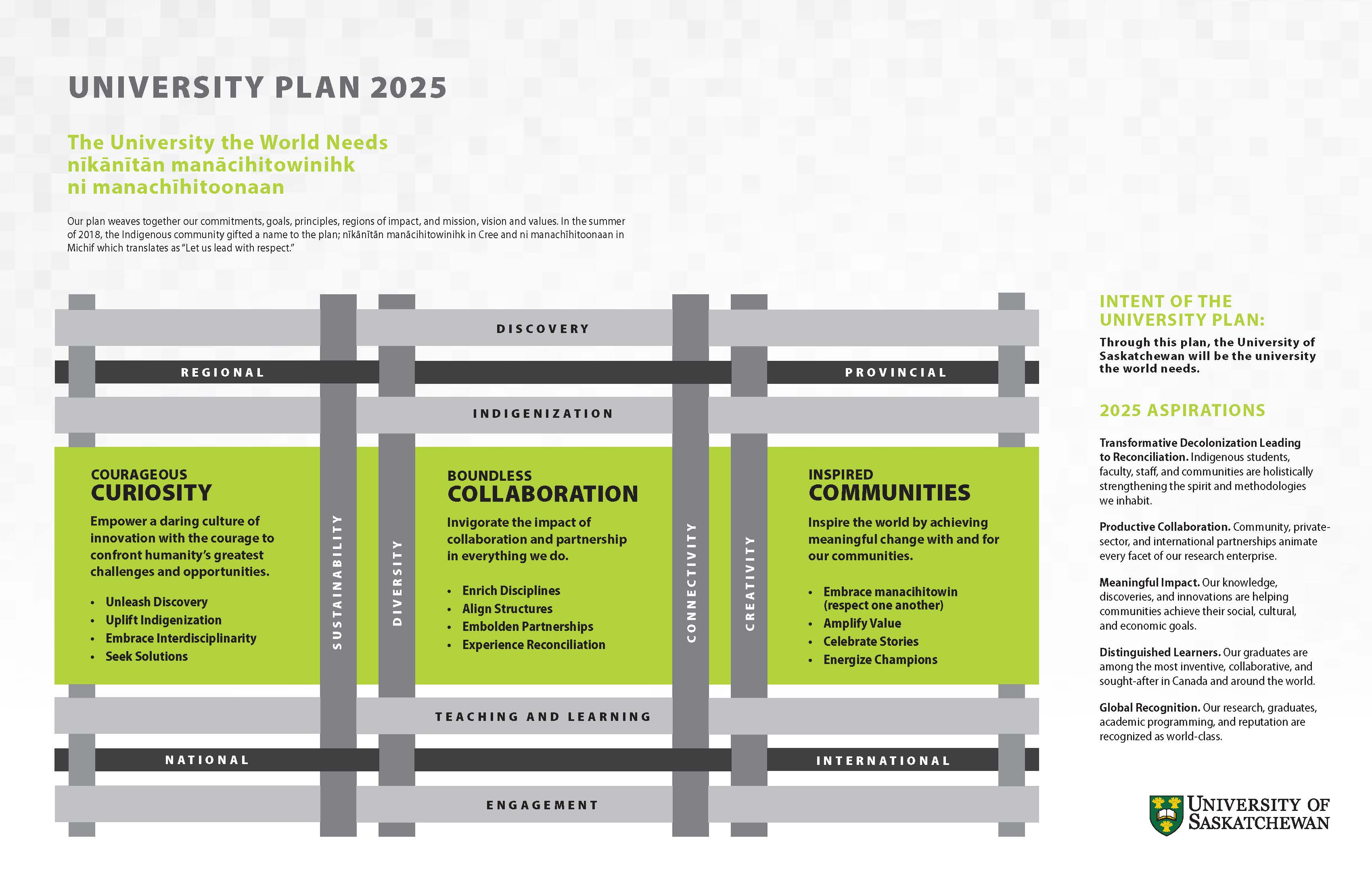A bold new plan
Universities are needed now more than they have ever been, and that is certainly true for the University of Saskatchewan. To be a university for the future, it is incumbent upon us to stay connected to the communities we serve, locally and globally—to contribute to them and, in so doing, to be the university the world needs.
A message from Peter Stoicheff

Universities are needed now more than they have ever been, and that is certainly true for the University of Saskatchewan. To be a university for the future, it is incumbent upon us to stay connected to the communities we serve, locally and globally—to contribute to them and, in so doing, to be the university the world needs.
Guiding us towards achieving this aspiration is our 2025 University Plan. Built through consultation and collaboration it evolves from our 2016 Mission, Vision and Values, and is informed by and takes us beyond previous integrated plans.
This 2025 University Plan is grounded in our strengths. As our Vision document states, "we use interdisciplinary and collaborative approaches to discovery.” No other research-intensive, medical-doctoral university in Canada has the array of colleges and interdisciplinary schools we do. None has the unique scientific infrastructure we have, nor our unique signature areas through which we are having a global influence. We have an unparalleled breadth of expertise in our professional colleges, social science disciplines, humanities and fine arts departments, and fundamental and applied science units. Together, we have the tremendous variety of programming and research—and the faculty, staff and student talent—to serve and inspire our communities: this city, this province, this country and beyond.
Fundamental to all of this is the key role our university plays in reconciliation. This plan must impel us, and clarify our purpose, in this regard. It is fundamental because we will achieve much when we are a strong university of common purpose, a trusted partner in the national imperative of reconciliation, engaging together the many communities we serve in an era of unprecedented political and technological change.
Our challenge, to be met in this plan, is to make this whole greater than the sum of its parts. When we are successful at doing so, students around the globe will see the university in particular as a place to develop knowledge and skills they need to thrive in a future defined by constant change. Faculty will view the university as a place that creates unmatched possibilities for collaboration, discovery and impact. Staff will find inspiration in the opportunity to create solutions— systems, practices, physical spaces—that reflect the university’s ambition. Our diverse communities will engage with and find inspiration in everything we do. We will take our place among the world's top institutions of higher learning.
And in the process we will be the university the world needs. I invite all of us to join together in reaching that aspiration.
Peter Stoicheff
President and vice-chancellor
The discovery process
Becoming the university the world needs
With the updated Mission, Vision and Value statement establishing its path, along with the framework from the existing three integrated plans, the University Plan began to take shape in 2016.
“Those first three integrated plans plus the Mission, Vision and Values allowed us to look at a University Plan that was outwardly facing and focused not on what we want to be as a university but on what the world needs us to be as a university,” said Debra Pozega Osburn, vice-president of University Relations.
From those building blocks, the plan underwent extensive consultation. Pozega Osburn calls this phase the discovery process. Community groups, University Council, leadership teams, alumni, Indigenous leaders and students, among many others, were given the opportunity to provide insight, knowledge and feedback on what they thought the University Plan should be.

“We wanted to bring the community in to the formation of this plan in some really powerful ways,” said Pozega Osburn, who maintained that listening was the key factor in building the guiding commitments of the Plan.
“As we were prompting these conversations and listening, the three commitments developed. These are words that were brought forward when talking about the plan and these are the major ideas that we heard over and over again.”
The three commitments of the University Plan were then framed from the conversation resulting in Courageous Curiosity, Boundless Collaboration and Inspired Communities. From each of these commitments, goals were built, guideposts were developed and aspirations were established. All of the layers were built based on the input from the discovery process.
“What people are telling us and what we heard through this whole discovery process is that people expect great things of us. They think that there are things that we can accomplish, areas in which we can lead, areas in which we can collaborate and partner, things we can do to inspire that will make a big difference in the world,” said Pozega Osburn.
Pozega Osburn said USask alumni played a valuable role by bringing their expertise to the table during the discovery process. Alumni can act as ambassadors, she said, and she is excited for the group’s involvement as the university gets to work moving the plan forward.
“It became clear that alumni want to be involved in our university in new ways, in mutually beneficial ways and in productive ways. That is so important for a university to succeed. It’s a gift to us that our alumni want to be a part of our future,” said Pozega Osburn. “Nobody can tell our story the way our alumni can tell our story.”
Debra Pozega Osburn on the three commitments of the University Plan
Courageous Curiosity
“We’re not afraid to ask the questions that need to be asked. We’re not afraid to confront the things that need to be confronted. You can do that at a big research university and at the University of Saskatchewan you can do it in a powerful way because we have our deep roots in Saskatchewan and we have a certain set of values.”
Boundless Collaboration
“We collaborate and we forge partnerships no matter what we’re doing. Boundless means exactly what it says; there is no limit to our ability and willingness to collaborate.”
Inspired Communities
“The more we can work with and for our communities to inspire the world, the more we can work with and for our communities to address society’s needs for the next generation.”
Grit McCreath (BEd’91), USask honourary ambassador, tells us why alumni have a role to play in the University Plan.

I am a graduate of the College of Education and spent 32 years as a teacher and administrator in both public and private schools at all levels. For the last 13 years, I have felt I owe a debt of gratitude to the university for giving my parents a wonderful opportunity in their new-found homeland and providing a terrific launch for my brothers and myself.
My husband Scott McCreath (BComm’69) and I always stressed the importance of education to our own children. In our immediate family, there are more than 25 degrees from USask. Since 2006, I have proudly served on the USask Senate, the Board of Governors and now as the honourary university alumni ambassador.
Like all of you, our degrees from USask are just the beginning. From the day we graduate, all we do and all we accomplish, we do as alumni. No matter what we call it—a family, a clan, a network—being a USask alumni is a great connector. We are students for a short time, but alumni for a lifetime! All of us should feel integral to the fabric of this incredible institution.
It’s important to stay connected to our alma mater. This will ensure we remain part of USask forever and we experience a lifetime of learning. We share common roots, work ethic, independent spirit and a strong sense of community—we are USask proud!
As well, we have an unbelievable opportunity to mentor. There are examples of this in every college. How fantastic is it to learn from those who have walked the same path and had similar experiences. My husband Scott is experiencing one of his life’s highlights volunteering as the executive-in- residence with students at the Edwards School of Business.
Alumni are a valuable asset and staying connected is paramount. Alumni want to know what USask is accomplishing so they can spread the word. They are the most passionate ambassadors, champions, advocates and cheerleaders. There is so much to be proud of—the list of the more than 152,000 of us in 120 countries and the accomplishments are formidable! People are willing and enthusiastic about giving back—they just have to asked. Alumni can mentor, provide scholarship funding, collaborate with the university to come up with creative ways to become financial partners for new initiatives. They are generous in sharing wisdom and experiences. Their networks and expertise are barometers that help guide the university.
Alumni are enthusiastic supporters of the University of Saskatchewan and their commitment and influence are treasures.



